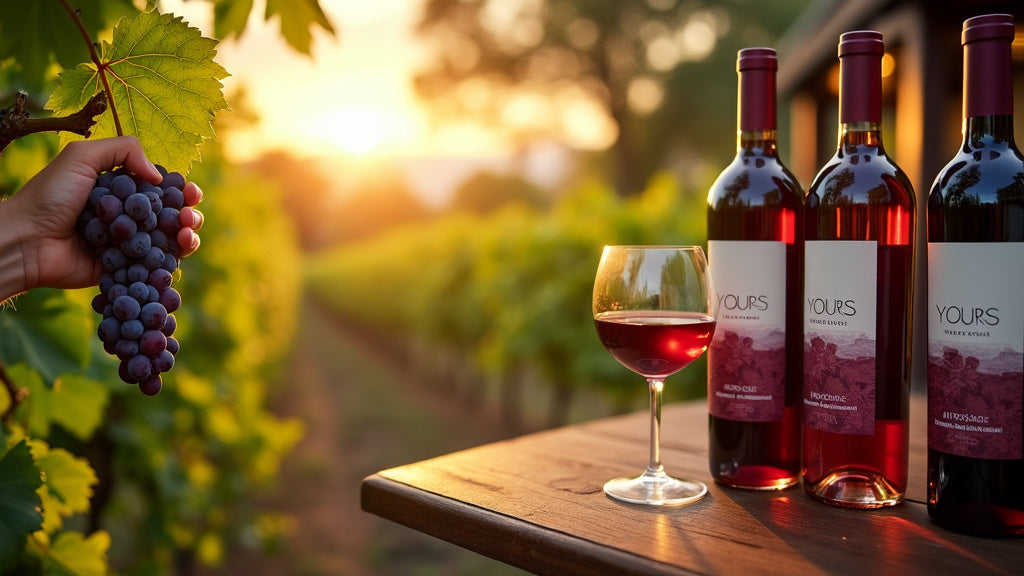12 Antioxidants in Non-Alcoholic Wines: Myths vs. Facts
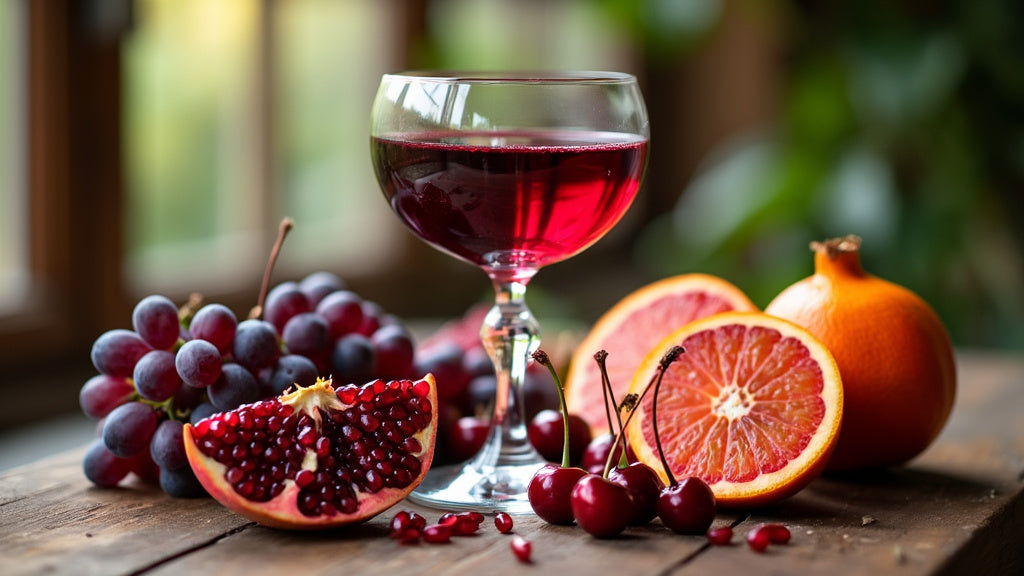
Key Takeaways
Key Points: Antioxidants in Non-Alcoholic Wines
- Non-alcoholic wines retain many antioxidants found in regular wine, including resveratrol, polyphenols, flavonoids, and anthocyanins.
- Health benefits include reduced risk of heart disease, potential improvements in brain health, and possible cancer prevention.
- Non-alcoholic wines are produced by removing alcohol through vacuum distillation or reverse osmosis, typically containing 0.0-0.5% alcohol by volume.
- Moderate consumption (1-2 glasses per day) is recommended for optimal health benefits.
- YOURS Non-Alcoholic Wines offer additional benefits such as improved sleep, better energy, and healthier skin.
1. The Rise of Non-Alcoholic Wines and Their Antioxidant Content
Non-alcoholic wines have become more popular as a healthier option compared to regular wines. They're made by taking out the alcohol from normal wine, usually through vacuum distillation or reverse osmosis. Even though the alcohol is removed, many non-alcoholic wines still keep the good stuff found in regular wine, like antioxidants.
Antioxidants are really important in our diet because they protect our cells from damage caused by things called free radicals. They're linked to lots of health benefits, like lowering the risk of heart disease and some types of cancer. The good news is that non-alcoholic wines can be a great way to get these helpful compounds.
Let's take a closer look at the antioxidants in non-alcoholic wines and clear up some common misunderstandings about them.

For more information on non-alcoholic wines, check out our guide to the 13 best non-alcoholic wines to try.
2. Myth: Non-Alcoholic Wines Lack Antioxidants
Some people think that non-alcoholic wines don't have any antioxidants. This isn't true at all. Non-alcoholic wines keep many of the good compounds found in regular wine, including important antioxidants like resveratrol, polyphenols, and flavonoids.
Resveratrol is a powerful antioxidant found in grape skins. It's known for possibly helping protect your heart. Polyphenols are a bigger group of antioxidants that include flavonoids. These compounds have been linked to various health benefits, like less inflammation and better brain function.
While taking out the alcohol might change how much of some antioxidants are in the wine, many non-alcoholic wines still have a good amount of these helpful compounds.
Learn more about the antioxidant content in different types of non-alcoholic wines in our guide to the best non-alcoholic red wines.
3. The Antioxidant Profile of Non-Alcoholic Wines
The antioxidants in non-alcoholic wines can be different depending on things like the type of grapes used, how the wine is made, and how the alcohol is removed. Usually, red non-alcoholic wines have more antioxidants than white ones, just like regular wines.
When you compare them to regular wines, non-alcoholic wines often have similar types of antioxidants, but the amounts might be a bit different. Some studies have found that certain antioxidants, like resveratrol, might be in smaller amounts in non-alcoholic wines. But others, like polyphenols, can still be there in good amounts after the alcohol is removed.
It's worth knowing that the amount of antioxidants can also be affected by things like the type of grape, how it was grown, and how the wine was made. For example, YOURS Non-Alcoholic California Red Blend is made to keep lots of antioxidants, so it might be good for your health without the alcohol.
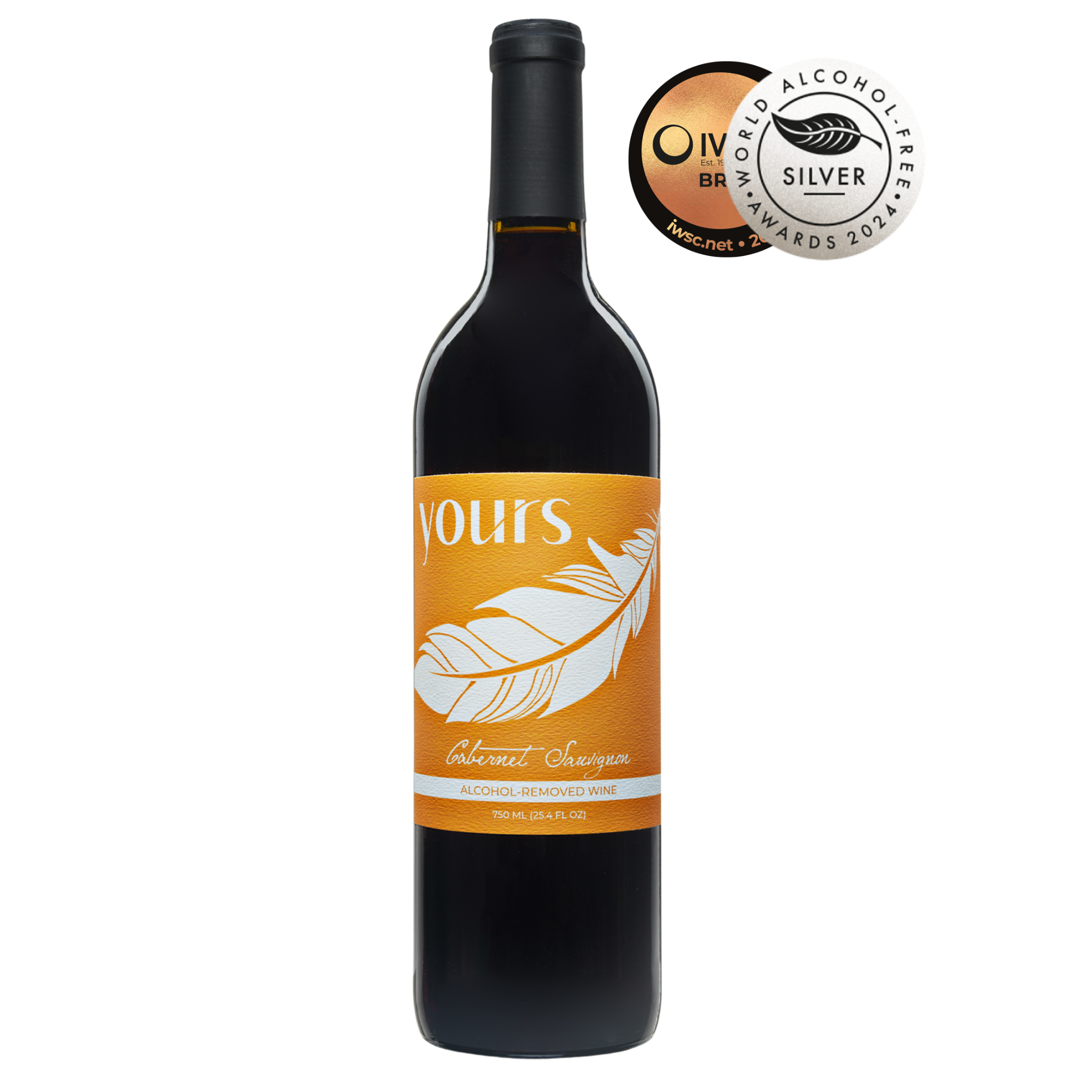
4. Health Benefits Associated with Antioxidants in Non-Alcoholic Wines
The antioxidants found in non-alcoholic wines might be good for your health in several ways. These include:
1. Heart Health: Antioxidants like resveratrol and flavonoids might help your heart by reducing inflammation, lowering blood pressure, and improving cholesterol levels.
2. Cancer Prevention: Some studies suggest that the antioxidants in wine might help fight cancer, possibly lowering the risk of certain types of cancer.
3. Brain Health: Polyphenols found in wine have been linked to better brain function and a lower risk of brain diseases like Alzheimer's.
It's important to remember that while these possible benefits sound good, we need more research to fully understand how antioxidants from non-alcoholic wines affect our health. As always, it's best to drink them in moderation as part of a balanced diet.
For more information on the health benefits of different types of non-alcoholic wines, check out our guide to the best non-alcoholic white wines.
5. Myth: All Non-Alcoholic Wines Have the Same Antioxidant Content
Another common misunderstanding is that all non-alcoholic wines have the same amount of antioxidants. Actually, the levels of antioxidants can be very different depending on things like the type of grape, how the wine is made, and even the specific brand.
For example, YOURS Non-Alcoholic California Red Blend is made to keep lots of antioxidants. This blend mixes real California red wine that has had the alcohol removed with carefully chosen natural flavors. The result is a drink that not only tastes good but might also be good for your health.
If you're choosing a non-alcoholic wine for its antioxidants, it's a good idea to do some research or ask the company making it for more information about how they make their wine and what health benefits it might have.
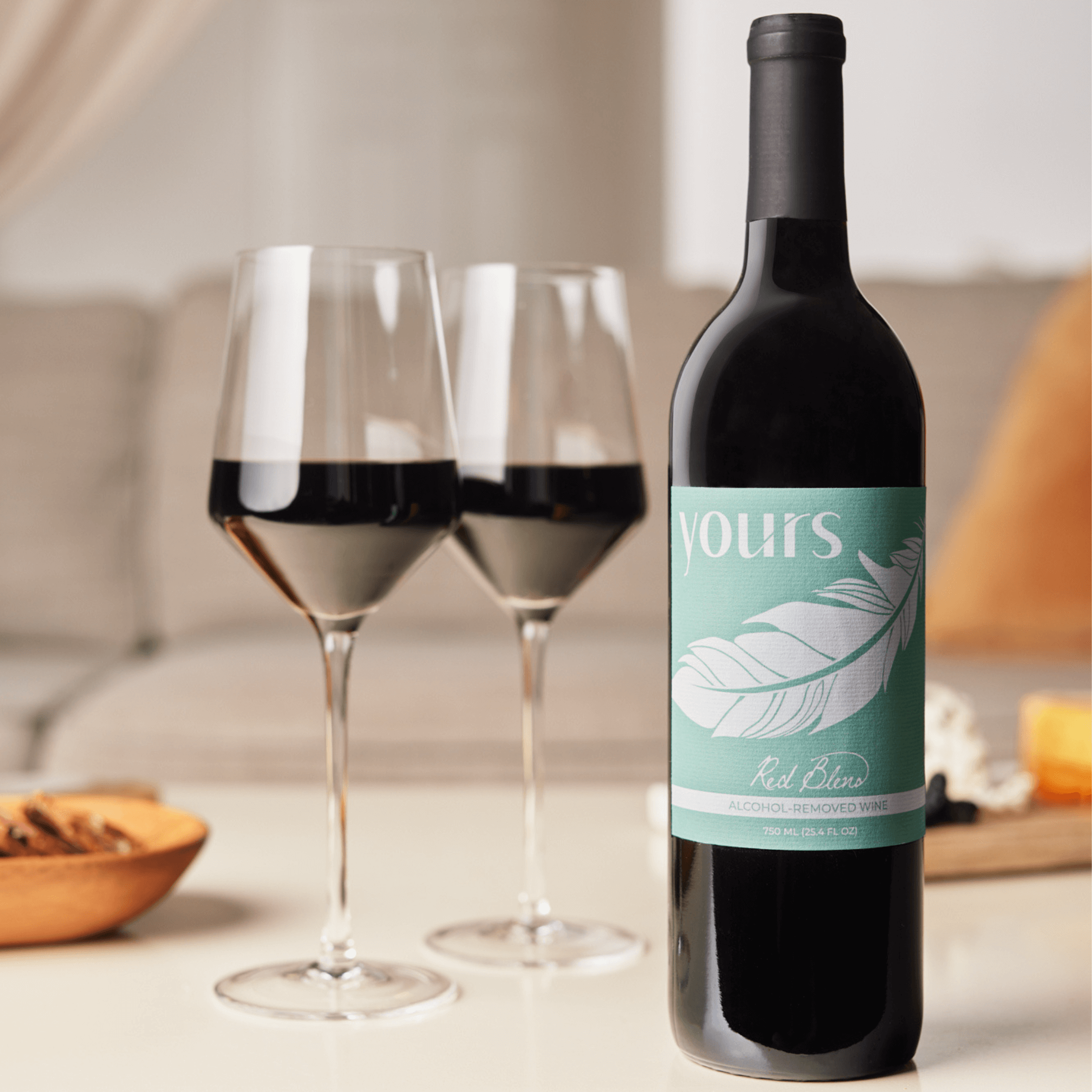
6. The Role of Resveratrol in Non-Alcoholic Wines
Resveratrol is a special antioxidant found in wine, especially in red wines. It's gotten a lot of attention because it might be good for your heart and help you age better. But how much resveratrol is in non-alcoholic wines?
The good news is that many non-alcoholic wines, especially red ones, still have resveratrol. While there might be less of it than in alcoholic wines, it's still there and can contribute to the overall health benefits of the drink.
YOURS Non-Alcoholic wines, for example, are made to keep beneficial compounds like resveratrol. This means you can enjoy the possible health benefits of resveratrol without the negative effects of alcohol.
7. Antioxidants and Weight Management: Non-Alcoholic Wines as a Low-Calorie Option
If you're watching your weight, non-alcoholic wines can be a good choice. They usually have fewer calories than regular wines, but still give you beneficial antioxidants. For example, YOURS Non-Alcoholic Chardonnay has just 30 calories in a 5oz serving, compared to about 124 calories in a regular glass of wine.
The antioxidants in non-alcoholic wines might also help with weight management. Some studies suggest that certain antioxidants, like resveratrol, might help boost your metabolism and reduce fat storage. While we need more research, enjoying a glass of non-alcoholic wine as part of a balanced diet could possibly help with your weight goals.
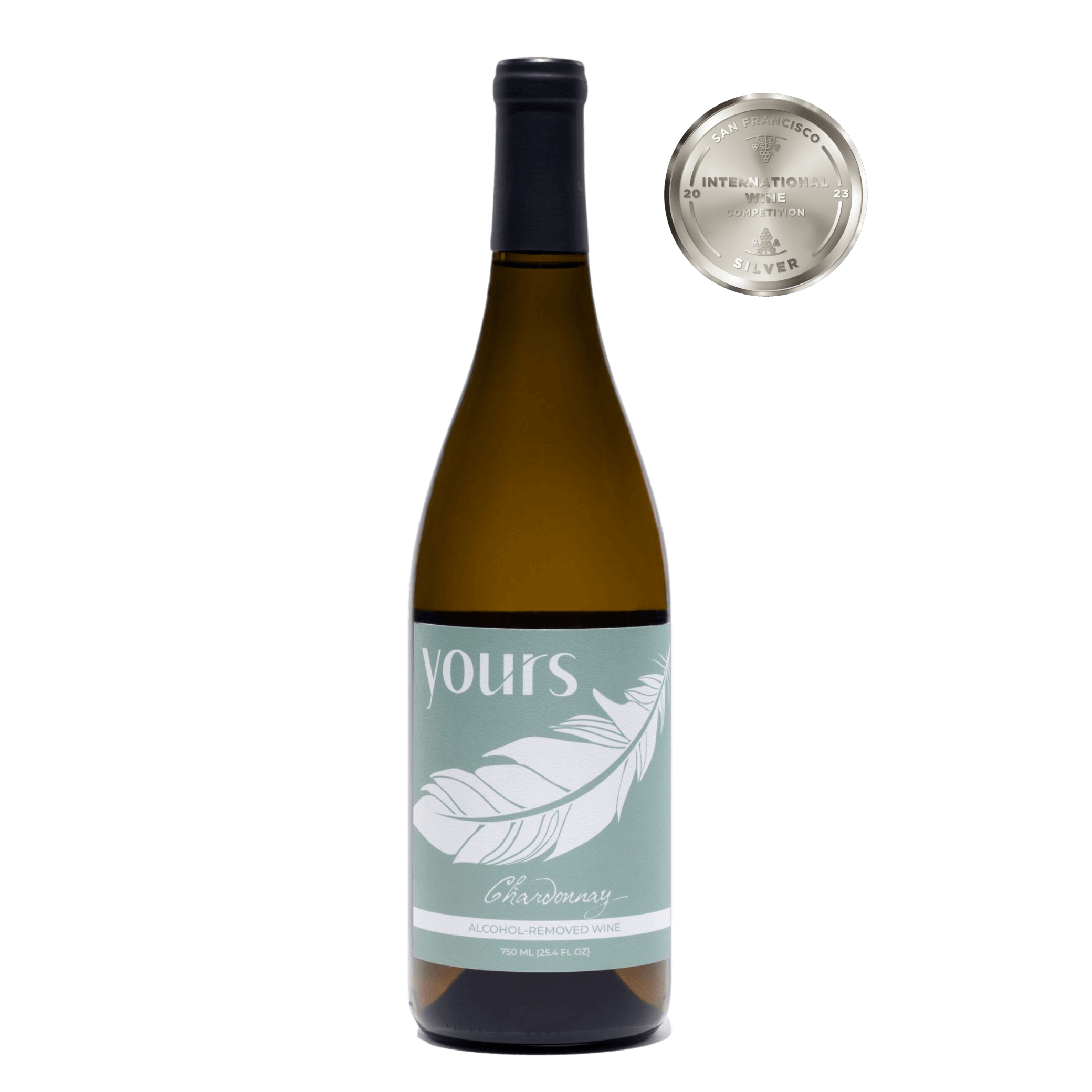
For more low-calorie options, check out our guide to the best non-alcoholic champagnes.
8. Myth: Antioxidants in Non-Alcoholic Wines Are Not Bioavailable
Some people worry that our bodies can't absorb and use the antioxidants in non-alcoholic wines. But studies have shown that many antioxidants in non-alcoholic wines are indeed bioavailable, which means our bodies can absorb and use them effectively.
How well we absorb these antioxidants can depend on several things, like the specific type of antioxidant, whether you drink the wine with food or not, and differences in how people's bodies work. Some research suggests that drinking non-alcoholic wine with a meal might help your body absorb certain antioxidants better.
While we need more research to fully understand how well our bodies can use the antioxidants in non-alcoholic wines, current evidence suggests that these drinks can be a good source of antioxidants in our diet.
9. Non-Alcoholic Wines for Pregnant and Breastfeeding Women: A Safe Source of Antioxidants
For pregnant and breastfeeding women who want to enjoy the taste of wine and get some antioxidants, non-alcoholic wines can be a safe option. These wines usually have less than 0.5% alcohol, which is considered safe during pregnancy and breastfeeding.
Non-alcoholic wines like YOURS can provide helpful antioxidants without the risks that come with drinking alcohol during pregnancy. However, it's always best to check with your doctor before adding any new foods or drinks to your diet when you're pregnant or breastfeeding.
Remember, it's important not to drink too much. Even with non-alcoholic options, it's recommended to limit yourself to 1-2 glasses (150ml each) per day to make sure you're not getting too much sugar or calories.
10. The Impact of Production Methods on Antioxidant Content
How non-alcoholic wine is made can really affect how many antioxidants it has. There are two main ways to make non-alcoholic wine: vacuum distillation and reverse osmosis. Both methods try to remove the alcohol while keeping the wine's flavor and good compounds.
YOURS Non-Alcoholic wines use a carefully designed process to keep the wine's antioxidants. They remove the alcohol from real California wine and then mix it with natural flavors to create a drink that's rich in antioxidants and full of flavor.
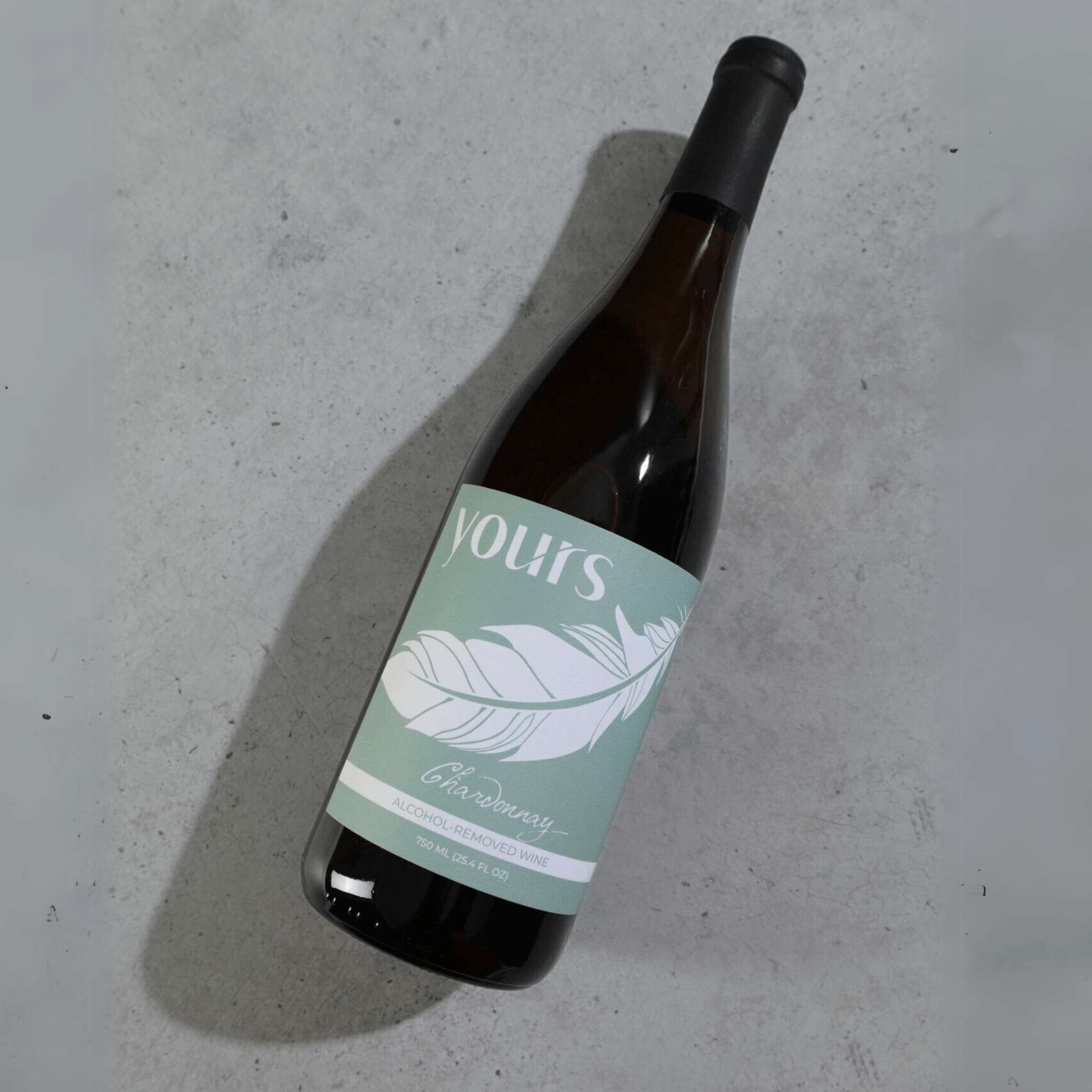
11. Pairing Non-Alcoholic Wines for Maximum Antioxidant Benefits
To get the most out of the antioxidants in your non-alcoholic wine, try pairing it with foods that are also rich in antioxidants. This can create a team effect, potentially making the overall antioxidant benefits of your meal even better.
Some good pairings for YOURS Non-Alcoholic wines include:
1. YOURS Non-Alcoholic California Red Blend with dark chocolate or berries
2. YOURS Non-Alcoholic Chardonnay with grilled vegetables or a spinach salad
3. YOURS Non-Alcoholic Cabernet Sauvignon with lean red meat or mushroom dishes
Remember, the key is to enjoy your non-alcoholic wine as part of a balanced diet with lots of antioxidant-rich foods for the best potential health benefits.
12. Conclusion: Embracing Non-Alcoholic Wines as a Healthy Lifestyle Choice
Non-alcoholic wines let you enjoy the flavor and possible health benefits of wine without the negative effects of alcohol. As we've seen, these wines can have lots of antioxidants, which might be good for your heart, brain, and more.
While we need more research to fully understand how antioxidants from non-alcoholic wines affect us, they can be a valuable part of a healthy lifestyle. Remember to enjoy them in moderation, ideally as part of a balanced diet with lots of fruits, vegetables, and other foods rich in antioxidants.
Whether you're pregnant, watching your calories, or just looking for a healthier alternative to alcoholic wine, non-alcoholic options like YOURS can be a great choice. They let you enjoy the taste of wine while possibly benefiting from its antioxidants, all without the downsides of alcohol.
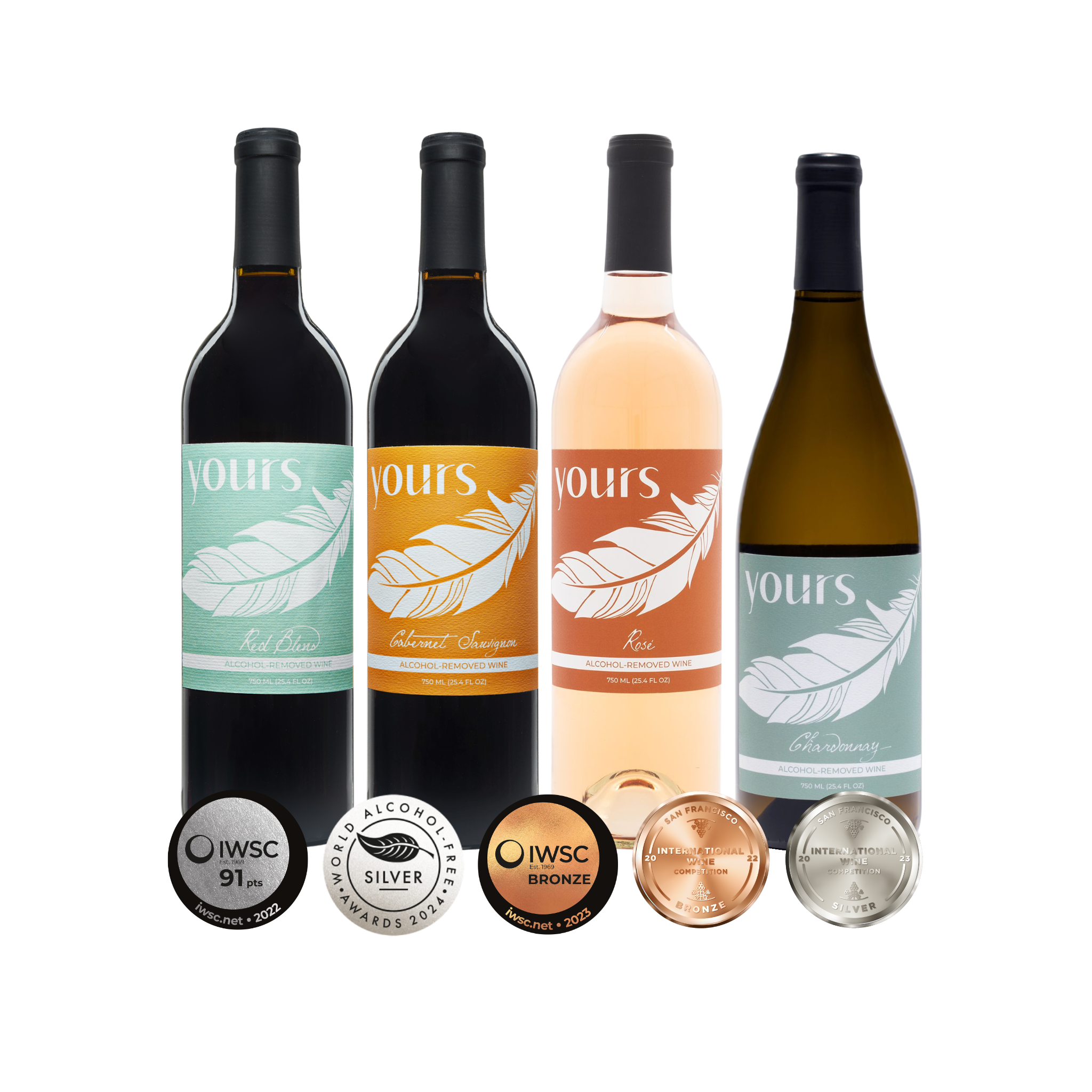
Ready to explore non-alcoholic wines? Check out our guide to the 13 best non-alcoholic wines to try and start your journey towards a healthier wine experience today!
FAQ Section
1. How much antioxidant content is retained in non-alcoholic wines?
The amount of antioxidants kept can vary, but many non-alcoholic wines keep a good portion of the antioxidants found in regular wine. Some studies suggest that certain antioxidants, like resveratrol, might be in smaller amounts, while others, like polyphenols, can still be there in good amounts.
2. Can non-alcoholic wines replace regular wines for health benefits?
Non-alcoholic wines can offer many of the same possible health benefits as regular wines, especially those related to antioxidants. They also have the added advantage of being alcohol-free, which removes the health risks that come with drinking alcohol.
3. Are there any side effects of consuming non-alcoholic wines?
Non-alcoholic wines are generally safe for most people. However, they might contain very small amounts of alcohol (usually less than 0.5%) and some sugar. People with certain health conditions or those who are completely avoiding alcohol should check with their doctor before drinking non-alcoholic wines.
4. How often should I drink non-alcoholic wine for antioxidant benefits?
While there's no strict rule, drinking in moderation is typically recommended. This usually means 1-2 glasses (150ml each) per day. However, it's always best to ask your doctor for personalized advice based on your individual health needs and goals.



